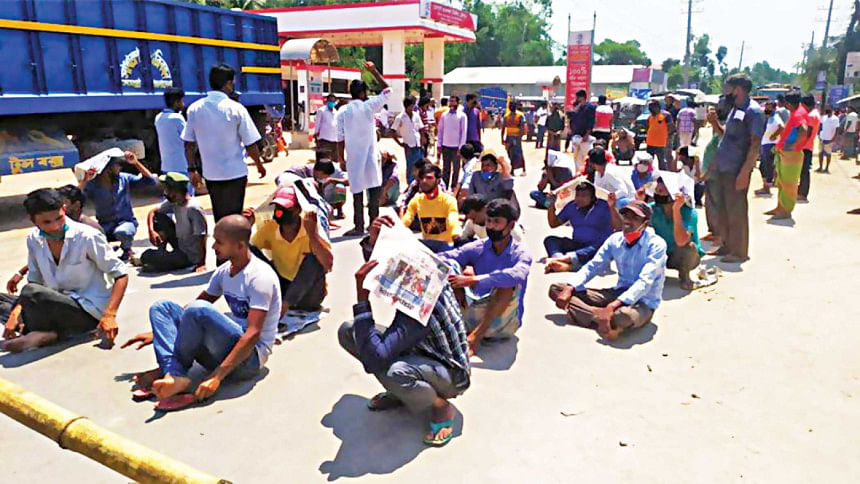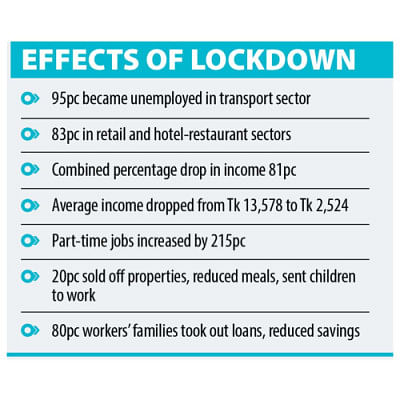87pc left without jobs during lockdowns


The lockdowns were grim for workers of the transport, hotel-restaurant and retail sectors, as they saw their jobs, incomes and savings disappear.
The combined unemployment rate in the sectors during lockdown periods in 2020 and 2021 was 87 percent, found a study. Among the three sectors, the highest rate, 95 percent, was recorded in the transport sector, while it was 83 percent in retail and hotel-restaurant sectors.
The numbers were revealed at a press conference of Bangladesh Institute of Labour Studies (BILS), held at the institute's premises in the capital.
BILS conducted the research titled "Study on the status of social protection and job security of private-sector workers; experiences amid Covid-19 pandemic and way forward" from April 5 to August 10, 2021.
"Among the unemployed workers, seven percent are yet to find a job," said Md Manirul Islam, deputy director (research) of BILS, who presented the findings.
The findings noted that the combined percentage drop in income in the three sectors was 81 percent. The highest, 96 percent, was witnessed in the transport sector, while it was 83 percent in the other two sectors.
The general average monthly income of a worker was Tk 13,578, which came down to Tk 2,524 during lockdown. After the lockdown, the income rose to Tk 12,529, said Manirul.
Part-time jobs increased by 215 percent during lockdown periods, he said.
Twenty percent of workers sold off their properties, reduced their meals and sent their children to work to cope with the financial crisis, he added. Besides, 80 percent of workers' families took out loans and reduced their savings after the lockdown period, the study found.
The three sectors were covered in the study as they were heavily affected due to two major country-wide restrictions on public movement in 2020 and 2021.
Speakers at the programme recommended preparing a complete database of private-sector workers and introducing an emergency humanitarian assistance programme for them.
They also suggested creating a policy provision to provide unemployment benefits to private-sector workers in emergencies.
Among others, BILS vice chairperson Amirul Haque Amin and directors Kohinoor Mahmood and Nazma Yesmin were present.

 For all latest news, follow The Daily Star's Google News channel.
For all latest news, follow The Daily Star's Google News channel. 



Comments